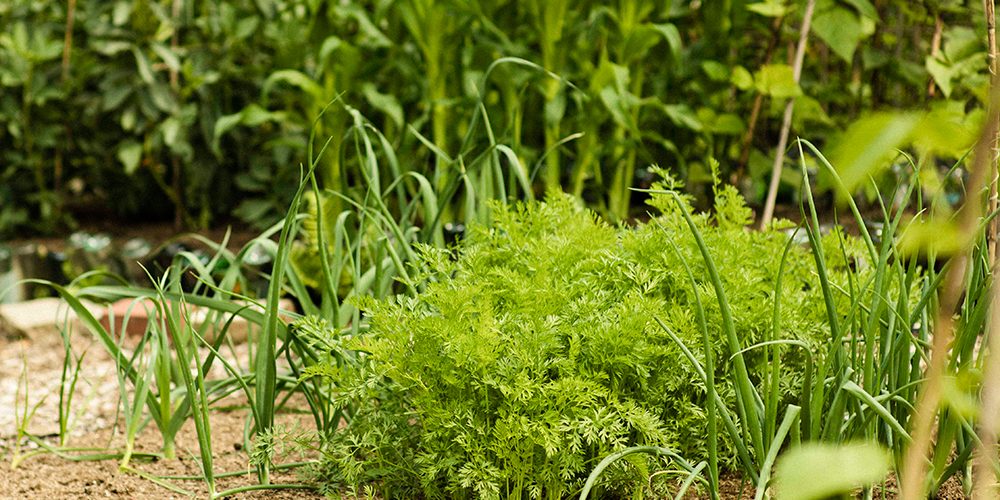With so many of you planting out this month, we’ve put together a little round up of all our favourite tips and tricks for grouping plants together to keep pests under control and for maximising space.
- Plant brassicas together so that you can cover them with mesh netting – brassicas tend to get devoured by cabbage white caterpillars and by pigeons, so it really helps to have them all together so that you can cover them with a mesh netting to keep pests out.
- Plant onions or leeks next to or in between rows of carrots. This can help to deter carrot root fly by masking the scent of the carrot leaves.
- If you’re growing climbing beans up an a-frame support, try growing salads and lettuces in the space in the middle – you’ll be able to harvest them before the beans get too big. Alternatively, try planting squash in the middle, which can sprawl along the ground.
- Plant climbers (climbing beans, peas) and tall plants (sweetcorn and tomatoes) at the back so that they don’t block sunlight from other plants.
- Use shady areas for lettuces and brassicas – they won’t mind a little less sun, and they’ll be less likely to bolt because the soil will be cooler.
- For outdoor growing, plant aubergine, chilli, pepper and tomatoes against a south facing wall so that the wall reflects heat back at them overnight.
- Plant lettuces in between rows of slow growing plants, like celeriac, parsnip and sweetcorn. You’ll be able to harvest the lettuces before the other plants get too big, so it’s a good way of squeezing more in.
- Plant full sized sweetcorn in grids to improve wind pollination.
- Plant tagetes and marigolds in between tomatoes, beans and other plants that are susceptible to aphids.
- Spring onions take up hardly any space and can easily be grown in between rows of other crops.

